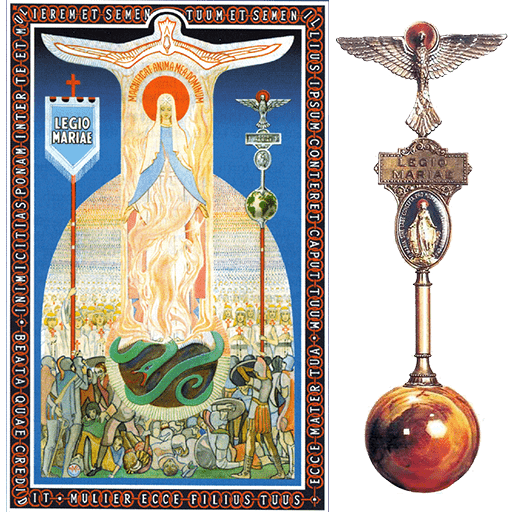July 2019 Allocutio
The call to be saints in an age of unbelief.
Fr. Liam Ó Cúiv
Recent news from the Vatican that Blessed John Henry Newman will be declared among the saints on 13th October by Pope Francis can cause us to marvel at the ways of God.
In his very first allocutio to the Concilium 15 years ago, Fr. Bede McGregor, whom we hope will very soon be well enough to resume his active service to the Legion, recounted a colleague of his telling him “your job is to encourage and help legionaries to become saints”. This is something that Fr. Bede has done faithfully ever since.
In our Legion meetings at the level of praesidia, Curiae and higher bodies, it is standard that an item on the agenda covers “Legion Causes”. And we can be grateful for the fact that this gets serious attention. I am aware of the interest so many legionaries have in the various causes: that of our Founder, Frank Duff, and of other former members of the Legion, especially that of the Venerable Edel Quinn.
However, we are made aware that according to the Handbook the primary object of the Legion is the personal sanctification of its members. So, we might say that our primary goal is NOT that our Founder and others might some-day be declared saints, but that we become saints ourselves.
2017 was, perhaps, the centenary year of the publication of Frank Duff’s “Can we be Saints?” There is no doubt that the Founding of the Legion was the outcome of his great zeal for souls. In a certain way it was a response he gave to the words of Jesus: “Truly, I tell you, just as you did it to one of the least of these who are members of my family, you did it to me.” (Mt. 25:40) Indeed, the Handbook (p.51) indicates that these words were heard at the very first meeting of legionaries.
Just over 50 years ago the Jesuit theologian, Karl Rahner, wrote: “The devout Christian of the future will either be a ‘mystic,’ one who has experienced ‘something,’ or he will cease to be anything at all.” Today, in much of the world we see amid a profound crisis of faith, the truth of his insightful words. In many countries where legionaries previously sought to bring lapsed Catholics back to the practice of their faith, today we face a reality of so many who have little or no faith at all.
If people’s faith is merely cultural and not a commitment emerging from a personal relationship with Jesus Christ, then our belief is not built on solid rock but on sand. It has been said that we are confronted by the need for a radically renewed proclamation of the Gospel. We must lead people to know Jesus, and not simply to know about him. An American theologian, John Shea, has stated, “without the experience of the lived relationship to God, the message becomes gibberish and the ethic becomes folly”.
It is in this context that we must be prepared to re-examine the way we carry out our apostolate as legionaries. The phrase Ecclesia Semper Reformanda (The Church is always in need of renewal) goes back to the writings of St. Augustine. As Pope Francis has stated, a Church that is living is for this reason semper reformanda; “in need of reform because she is alive.” Our great challenge is to find ways to bring people into a living faith. For so many people it is not a question of just returning them to the practice of the faith. It is something much deeper and far more challenging.
Pope Benedict XVI has stated that, you can believe without having seen Jesus in the flesh, but not without having experienced Jesus as living.
In the same way as legionaries we are called to witness to the living Jesus whom we love. This demands new ardour, new creativeness, and new methods. What we have called a new evangelisation. But let it be clear that we seek above all to bring Jesus to others and to bring others to Jesus. If we go to Jesus per Mariam through Mary, it is so that we have this living dynamic relationship with him, and seek with all our lives to share this with others.
This for us is the path of holiness, of Sainthood; it is to love God with all our strength and to love our neighbour as ourselves so that they can come to know God through us.
